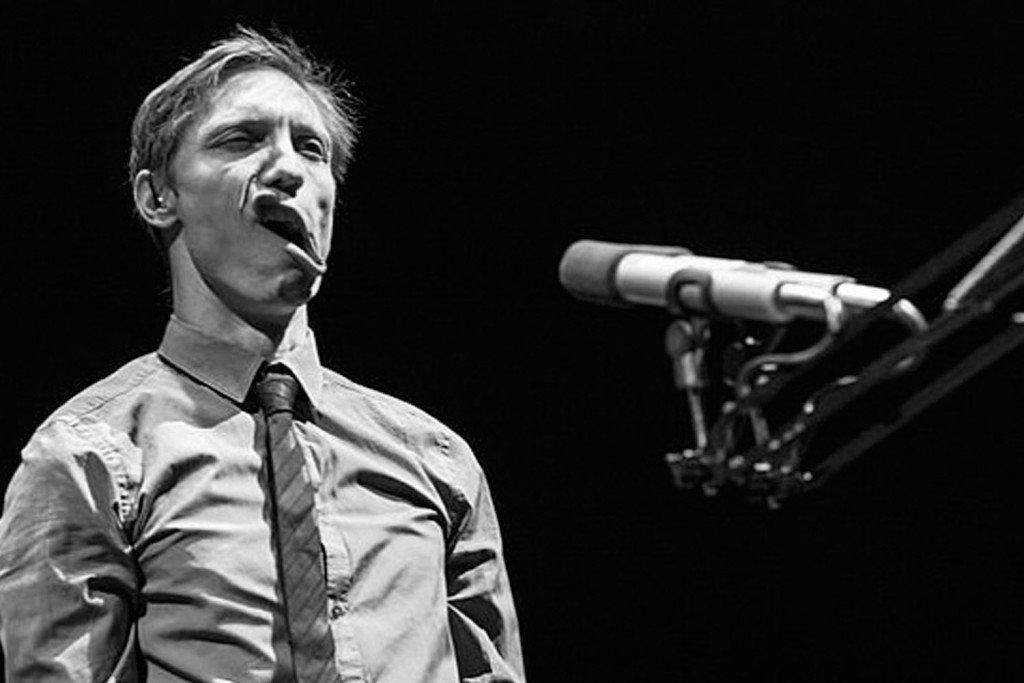
“War. What is it good for?!” Jerry Seinfeld proposed was Tolstoy’s original title for “War & Peace”. It was the first thing that came to my ADHD mind when I read up on Belgian theatre artist, Valentijn Dhaenens’ upcoming linguistic feast, “BigMouth”. The show entranced audiences at the Edinburgh fringe and is now coming to town at The York Theatre, via the Cultch, for a 10 day run. It opens on February 11th and goes on till the 21st. The show will have Dhaenens on stage accompanied by four microphones and a glass of water. Add to this a fascinating examination of speeches that changed the course of world history. “BigMouth” is sometimes poetry, sometimes prose, sometimes theatrics and sometimes music. It uses multimedia to thoroughly investigate the power of language at its most potent. Belgian, and particularly Flemish, theatre is currently generating waves of attention, thanks to Flemish dramatists who are going above and beyond to reinvent theatre. Dhaenens has created “BigMouth” in the same form-defying fashion of his home stage.
“BigMouth” created quite the buzz at the Edinburgh Fringe. Can you talk about the show and tell us how it came about?
“BigMouth” is basically a personalised history of the world through speeches. I start out with the Greeks inventing the speech as a form. I then go on to contemporary speeches like those by George Bush Jr. I promised myself I’d read at least one speech a day for a whole year. I ended up reading over a thousand. I also had an urge to make something intuitively and by myself. I had been making shows with other people till then. Something always gets lost in the discussion process. So I wanted to make a solo show. I put all the speeches in a big stack hoping that one day they would start communicating with one another and influencing each other. And that is actually what happened.
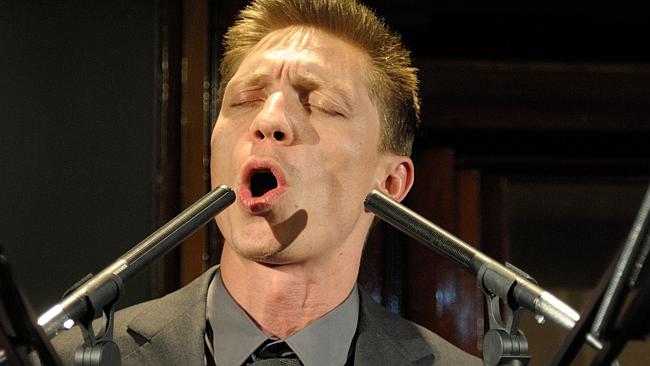
For example, in the show I read a very famous World War II speech by Goebbels, the propaganda minister of the Nazis. It’s called “The Total War” speech. “Wollt ihr den totalen Krieg?“ is the most famous line in that speech. When you listen to it online you can hear thousands of people shouting back at every question Goebbels asks. I found the speech so well written. Three months later, I read a speech by General Patton who was preparing sixteen year olds for D-Day. The Goebbels and Patton speeches were given just three weeks apart. Both were trying to convince people to give everything they have. Patton was talking to sixteen year olds, and Goebbels was talking to women because the men were away fighting. The difference in the languages of the two speeches is very interesting. Patton uses short, aggressive, racist sentences while Goebbels uses long, theatrical, beautiful sentences. Goebbels shouts and is really aggressive. I do his speech softly and a bit seductively, especially as it is addressed to women. I do it with an old 1940s mike that has a warm tone so that people really hear what the speech is about. I do five lines of Goebbels and then five lines of Patton. I switch between German and English a lot. It was as if the two speeches were asking to be put together.
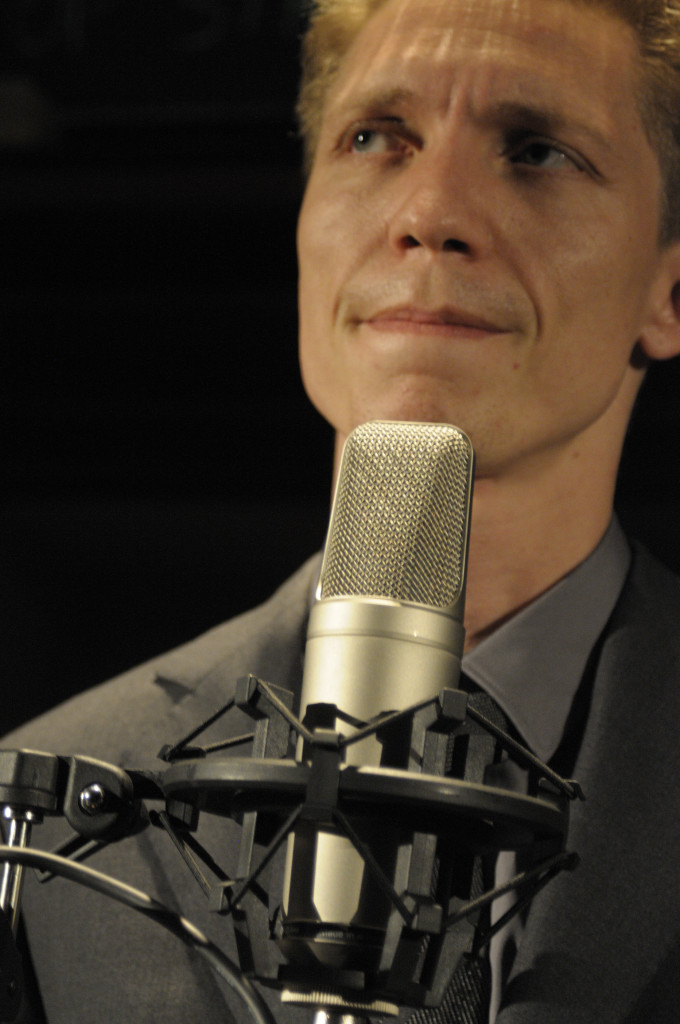
Are you fluent in German?
My mother tongue is Flemish, which is Dutch with a different accent. I know a little bit of German. My German isn’t as good as my English. It was challenging but also very fun. I’ve always been very interested in languages.
Do you think there is something hypnotic or sinister about speeches? If they are done well they can make anyone do anything.
When I was studying the science of language and history in high school, I came to understand that if you were good with words you could change the course of history. Of course, it helps to have a crisis at hand then too. We have this hole in our face and it’s capable of changing so much! You can comfort people or lead them into destruction.
What is your theatre background?
I studied drama studies from 1996-2000 at The Royal Conservatory of Antwerp. It is a famous school in Belgium. Dora van der Groen, the Stella Adler of Belgium, taught there. She died a few weeks ago. She took theatre into a new direction there. She was very important to me. On finishing school five of us started a company of our own. Six years later we got fully funded. I do projects with this company and other Belgian companies as well. The most well known company would be Ontroerend Goed. They tour internationally a lot. “BigMouth” is the first show I performed in a language other than Dutch. It has toured in Western Europe, America, Australia and also India.

Belgian theatre is breaking the rules and pushing boundaries at the moment. Can you tell us more about this cultural revolution?
Belgium is very small and we are all from the Flemish part. That is half of Belgium. I’m not exaggerating when I say I know 90% of all Flemish artists. We have a very international dance movement too. Choreographers like Anne Teresa De Keersmaeker, Alain Platel and Wim Vandekeybus have developed a great international network for Belgian art. Because of them people became interested in Belgian dance companies, and consequently in Belgian theatre makers. That happened twenty years ago.
French Belgium has Moliere and a big theatre tradition. Dutch speakers in Belgium don’t have anything. We don’t have a Shakespeare, we don’t have a Beckett. This void has pushed everybody into avant-garde theatre. We are very aware of our experiments. We very easily go “oh that’s so old-fashioned!” It’s a bit snobby! Everyone wants to be experimental. We have actually lost some audiences because of the constant experimentation. Some people just want to see a Shakespeare play. If we do Shakespeare we do it so strangely no one understands it!
Our neighbours- Germany, France, Holland and England, are very amazed at and interested in our work. They are much more weighed down by tradition. The other advantage we have in Belgium is our excellent funding system. I don’t know if it is going to last long because we have a right-wing government now that is complaining about too much funding for the arts.
So the dance movement, the search for a Flemish identity and the funding system are the three reasons why Flemish theatre is gaining attention internationally.
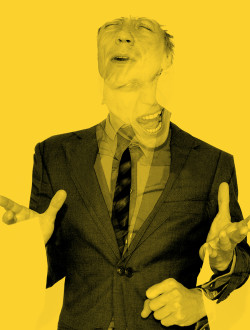
“BigMouth” is based on speeches that have led to war. Can you talk about your interest in war as a subject?
I’m not as political a dramatist as most people think. Half the speeches I collected just happened to be related to war or led to war. War hangs over “BigMouth” but it wasn’t my main purpose. My follow-up play, “SmallWar” is about the victims of all the wars caused by some of these speeches.
I did read up a lot on war though. Especially the First World War. For me World War I is the symbol of war because it was the first industrialised war. Tanks were invented. Plastic surgery was invented. I read interviews from the Vietnam War, where psychologists investigated what makes people want to kill. I read about soldiers who said your first kill is very difficult but once you kill one person there is an urge to kill another person soon after. I’m not sure if we’ll ever be able to live without war. It might be impossible to be human beings without war.
What was your process when bringing the different media together?
Long before I had the speeches, I knew that I wanted all the content to be produced by my mouth. That was the prerequisite. It was going to be about the power of speech. I also couldn’t just do speeches one after another. I needed some gaps. I found songs and put them between speeches. Sometimes even underneath the speeches. In the show I build different layers of sound and then loop them. I also do a version of Nirvana’s “Nevermind” which for me is the speech of my youth. I treat it as a speech and not as a song.
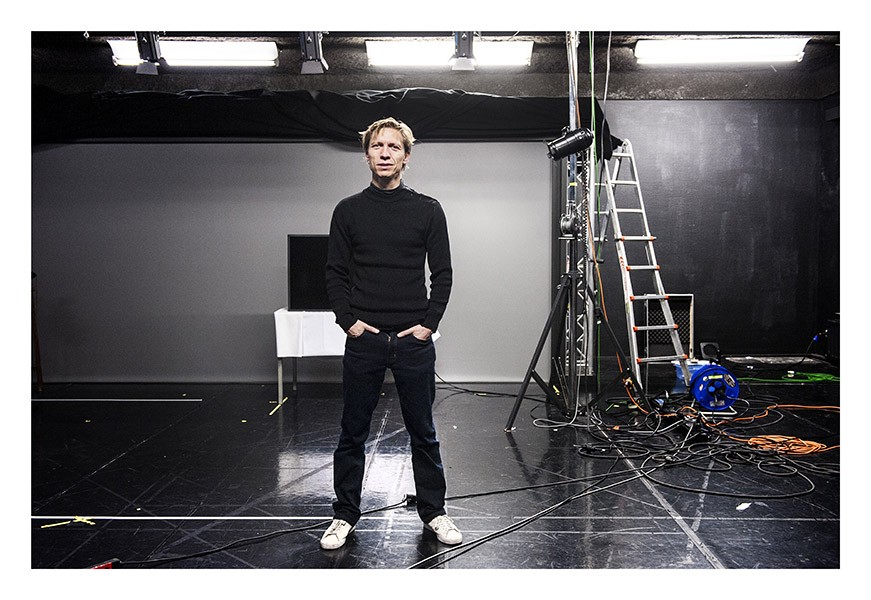
What inspires you?
I’m inspired by my life in general, I think. I grew up in the 80s. I watched a lot of TV and it shaped the way I think. I watched Hollywood movies. They are a part of me now. All the books in my closet, all my CDs, all my movies, they are 70% American. In the show I perform “I Want to Live in America” from West Side Story. That for me was almost like singing about how America wants to live in me.
What would you want the audience to walk out with?
I’m hoping that people see that nothing ever really changes in history. And that there is great power in words. We let ourselves get seduced by people who are good with words all the time. I want to give people a look into the construction of speeches too.
How does it feel when you are in the midst of performing?
I’m not actually made to do these shows! I’m always nervous and stressed before them. Half an hour before the show I’m really grumpy, I don’t want to do it and I’m hoping someone is going to cancel the show or something! But when I get on stage and do it, I really love it. I build the tempo. I feel the audience reacting. It’s like a trip. I’m a bit off the wall when I do it.
I still fear that one day I’m not going to know what to say next. It’s just me. I don’t have a colleague to help me out. That makes me nervous. Because there is so much text in this show, there’s always a point where I forget what I just said. I know which speech I’m in but I’ve forgotten what the last three sentences were. It always feels like a minute, but it’s probably two seconds. Up till now I always find my way back to where I was. It’s strange!
Don’t miss “BigMouth” at York Theatre starting February 11th. Get your tickets here.
-Prachi Kamble
